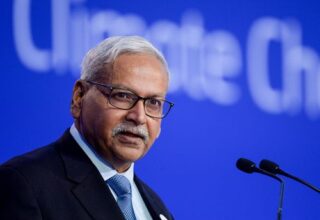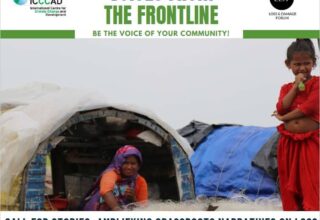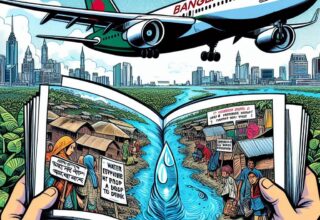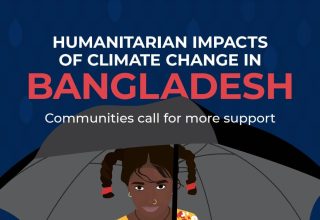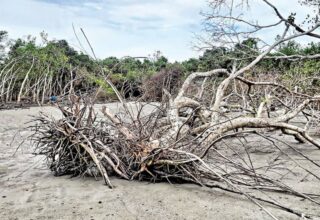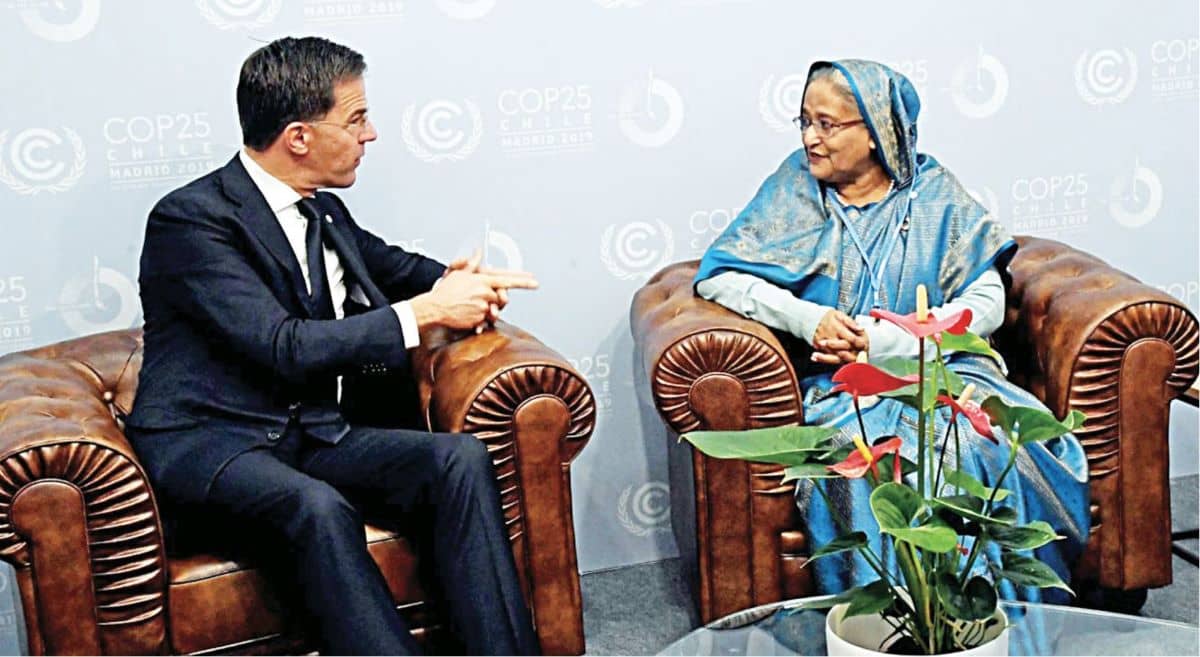
“The time to take action to save the planet is not tomorrow, but today.”
— Prime Minister Sheikh Hasina as Chair of CVF at CVF leaders’ event at the UNGA, New York on October 7, 2024.
“I believe our Presidency’s most important legacy will be to shift the narrative from climate vulnerability to resilience and prosperity. In Bangladesh, we are developing our ‘Mujib Climate Prosperity Plan’. We believe it can provide a template for other vulnerable countries in their own context.”
— Prime Minister Sheikh Hasina at the virtual handing over ceremony to the president of Ghana, Dhaka, May 5, 2022.
The above two statements by Prime Minister Sheikh Hasina as the second time leader of the Climate Vulnerable Forum (CVF) is indicative of Bangladesh’ bold and strong commitment in addressing climate change, nationally and internationally. But it is not very easy for a country like Bangladesh to provide leadership to the CVF, which is quite a big group of 68 member-states representing about 1.5 billion people (20 percent of the global population), comprising of middle-income, low-income and least developed countries (LDCs), coming from Asia and the Pacific, Middle east, Africa, Central America and the Caribbean regions.
However, one thread that binds all these countries together is their vulnerability to the impacts of climate change, which knows no national boundaries. In this context, Bangladesh, being one of the most vulnerable countries in the world, has done a phenomenal job in articulating the multi-faceted vulnerabilities of this group. However, before getting into the discussion about Bangladesh’s role, let us have a quick look at what the CVF is, what’s its mission, which countries have led the CVF, etc.
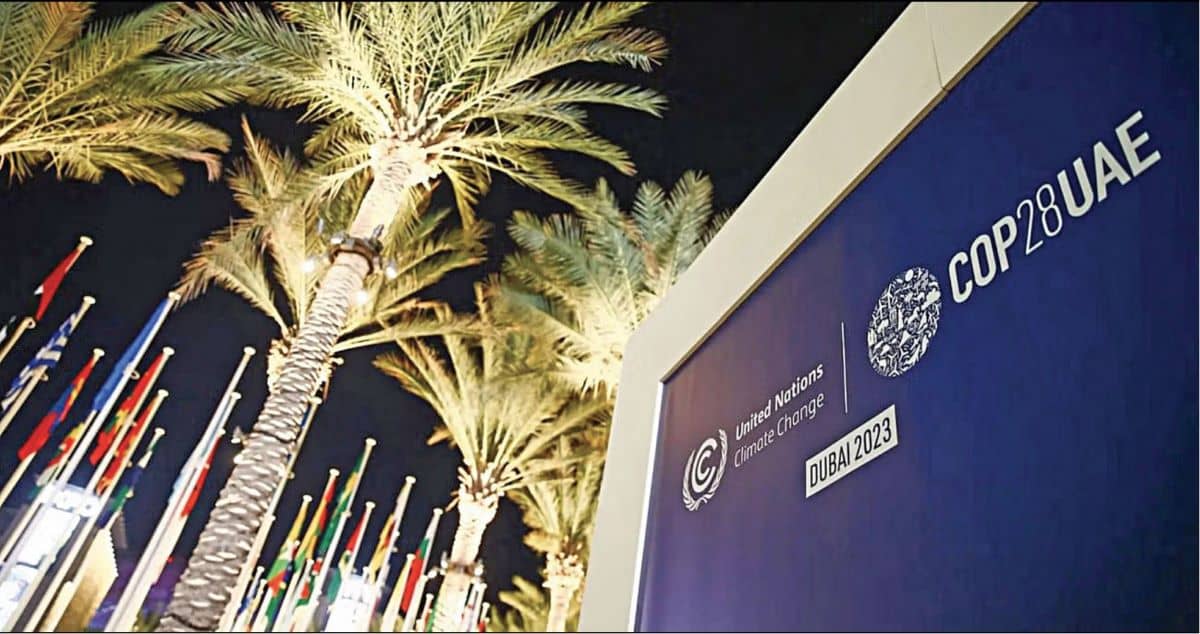
Background of CVF
The CVF, formed in 2009 in Male under the leadership of the Maldives, is a voluntary non-treaty organisation of countries that are disproportionately affected by the impacts of climate change. Its mission is to seek urgent solutions to the increasing impacts of climate change that are devastating the societies and economies of these countries. The CVF is not a negotiating group under the United Nations Framework Convention on Climate Change (UNFCCC), but a political lobbying group represented by country leaders of member-states. So, CVF promotes a two-pronged strategy: externally, the leaders try to exert political and diplomatic pressure on the Conference of the parties (COP) presidencies and major emitters to initiate decisive action through ramping up their mitigation commitments, and secondly, to live by example domestically through initiating best possible actions to address climate change challenges, given their limited capacity.
In 2009, the group started with just 11 members. But over time, CVF expanded so quickly that currently it has 68 members. This number has kept on increasing, indicating its value as the highest-level political lobbying group, against a very slow-moving UNFCCC process. So far, followed by Maldives, Kiribati, Bangladesh, Costa Rica, Philippines, Ethiopia, Marshall Islands, Bangladesh again led the group. In mid-2022 Bangladesh handed over CVF leadership to Ghana. Now the chair rotates every two years. So, Bangladesh had the unique privilege of leading the CVF twice—first between 2011-2013 and then again during 2022-2024. Why was this honour bestowed on Bangladesh by this global group? The answer to that question is important.
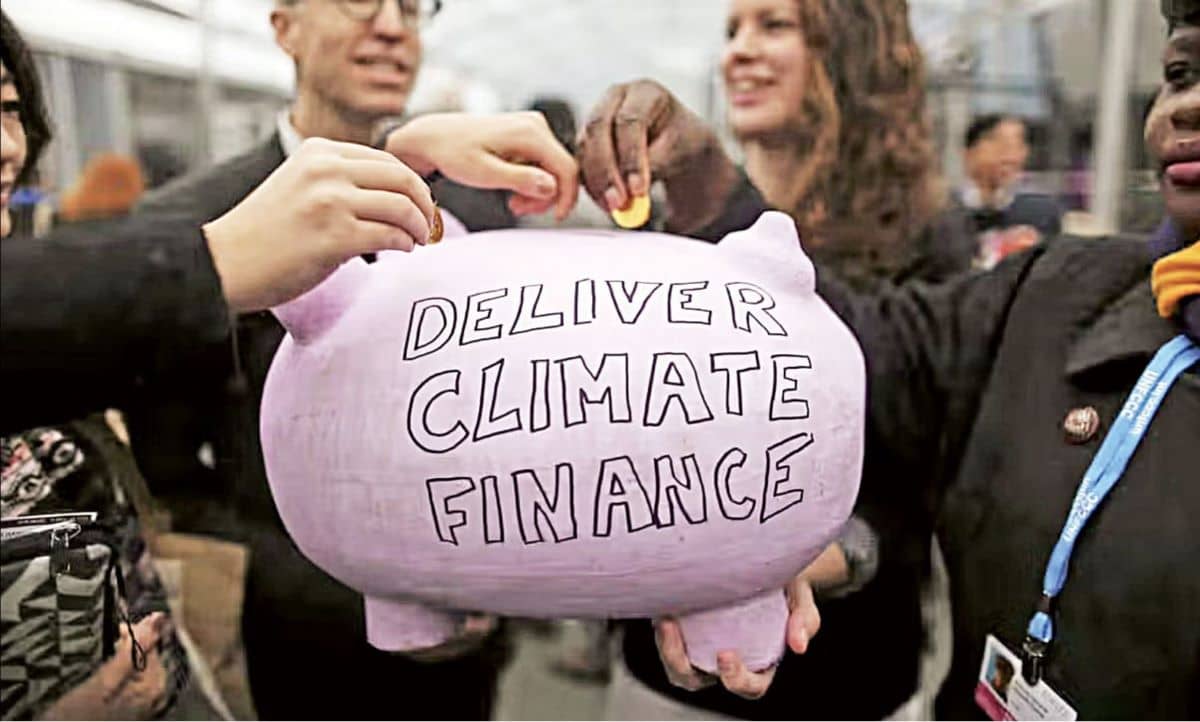
Elements of leadership
Let me start with a little explanation of leadership qualities a country usually requires to lead a global process. According to the literature, some of the factors that are usually considered include a country’s geography, natural resources, population, leadership quality, trends in economic development, industrial capacity, technology, military, ideational elements, national character and morale, quality of diplomacy and foreign support.
Looking at these elements, Bangladesh can be said to have both strengths and weaknesses as a sovereign entity. Having a small landmass—65 times smaller than the US—it is inhabited by a large population, which is half that compared to the US. This extremely high density has been reinforced by the presence of 1.2 million Rohingyas, forcibly evicted by the Myanmar military junta. Still, Bangladesh, for the last two decades, has maintained its position as one of the fastest growing economies, now commanding an economy worth almost half a trillion-dollars. GDP-wise, this places Bangladesh as the 33rd largest economy in the world. So, strong support on a sustainable basis is evident for Bangladesh from both its bilateral and multilateral development partners. Quite a number of our achievements in social and economic sectors are highly acclaimed by the global community, touting Bangladesh as the newly emerging tiger of Asia.
Then comes the leadership of Bangladesh in adaptation and resilience. Despite being badly battered by recurring climate disasters, Bangladesh has a knack of building back better quickly. This ability possessed by Bangladeshis earned it commendation from the world press. Our disaster management model, highlighted recently (after Amphan) in a column in The Guardian written by none other than Prime Minister Sheikh Hasina, has been emulated by many countries, both developed and developing. Also, Bangladesh as a climate vulnerable country is turning itself into a model of adaptation and learning for the world. Now, I must mention a few intangible elements of leadership that catapulted Bangladesh to lead the CVF.
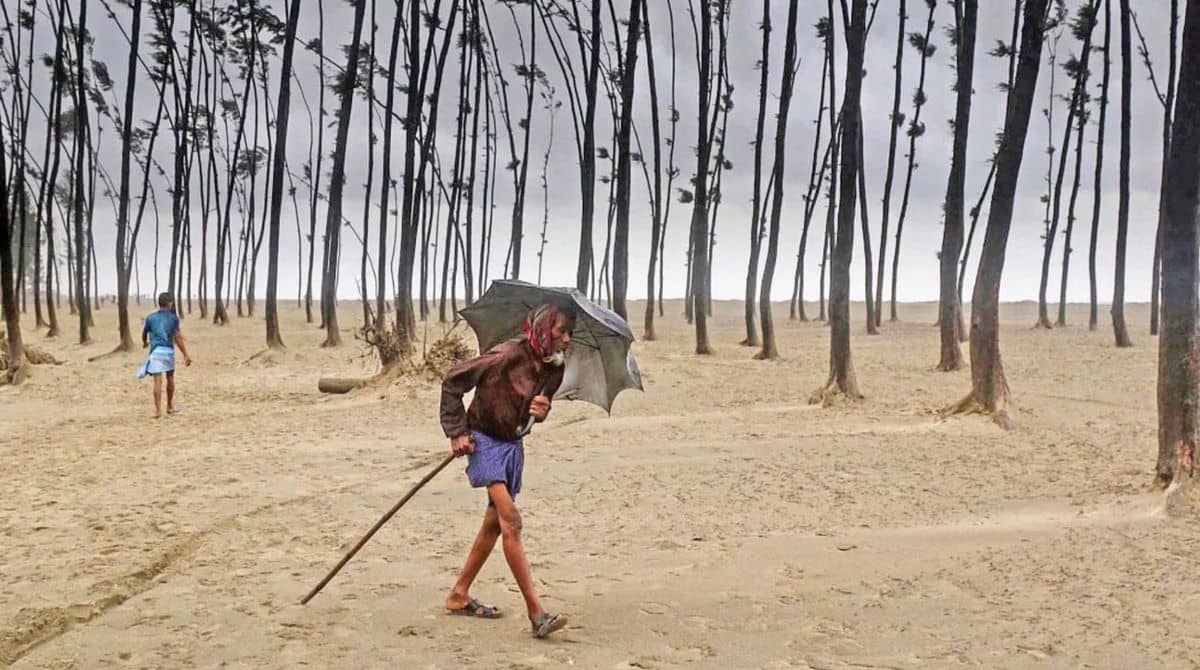
Key CVF concerns highlighted by Bangladesh as its chair
Bangladesh was the third chair of CVF from 2011 to 2013. Then the government hosted a ministerial meeting of CVF between November 13-14, 2011 in Dhaka, where Prime Minister Sheikh Hasina and the then UN Secretary General Ban Ki-Moon were keynote speakers at its inauguration ceremony. Nineteen climate-vulnerable countries supported the declaration and it was adopted on November 14, 2011.
The wisdom of the leadership was reflected in the articulation of its central message: “[We are] standing indivisible as we are in our determination to act to bring about a resolution to the global menace of climate change which ultimately entails ever greater human suffering, inequity and irreversible damage to the Earth.”
Then again, the Dhaka-Glasgow Declaration adopted in 2021 during the second term of Bangladesh’s leadership reflected the summary of CVF’s core demands and commitments. It renewed the call for high-emitting countries to keep the 1.5 degrees Celsius pledge alive under the Paris Agreement and raise their climate ambitions. We may recall that at the CVF leadership meeting, Hasina in her statement summarised the most pressing priorities of the forum such as: the major emitters must submit ambitious Nationally Determined Contributions (NDCs), and implement those; developed countries should fulfil their commitments of providing $100 billion annually with a 50:50 balance between adaptation and mitigation; the developed countries should disseminate clean and green technology at affordable costs to the most vulnerable countries; and the issue of loss and damage must be addressed, including climate migrants. The latter is an issue the prime minister of Bangladesh has been pushing for very strongly at every opportunity.
So, thanks to the strong political lobbying at the highest level by the prime minister of Bangladesh, the COP26 in Glasgow secured the commitment for increased adaptation finance and international dialogue on loss and damage. The strong leadership of Bangladesh in the CVF on loss and damage as the number one priority strongly contributed to the establishment and operationalisation of the Loss and Damage Fund finally at COP28, held in Dubai in December 2023. Other significant achievements during Bangladesh’s second leadership term include launching of the Midnight Survival Deadline for countries to raise their climate ambitions, which urged them to submit their NDCs by December 31, 2020. About 70 nations responded to this call. Also, Bangladesh led the establishment of the CVF-V20 Joint Multi-Donor Fund to support members in their climate action. Besides, some other important steps then taken were establishment of a new Special Rapporteur on the promotion and protection of human rights in the context of climate change at the 48th session of the UN Human Rights Council, and the establishment of an IUCN Climate Crisis Commission at the September 2021 World Conservation Congress at Marseille. These were a clear signal that the impact of climate change is both a human rights and an ecological crisis that the world community must respond to, including by leveraging and creating synergies between climate change and biological diversity.
During Bangladesh’s leadership of CVF, in October 2021 the CVF Global Parliamentary Group was established foractive engagement of the parliamentarians of all CVF members in the CVF Global Parliamentary Group in order to benefit from the exchange of legislative good practices and to enhance international engagement and cooperation on climate action with the legislative bodies of major economies.
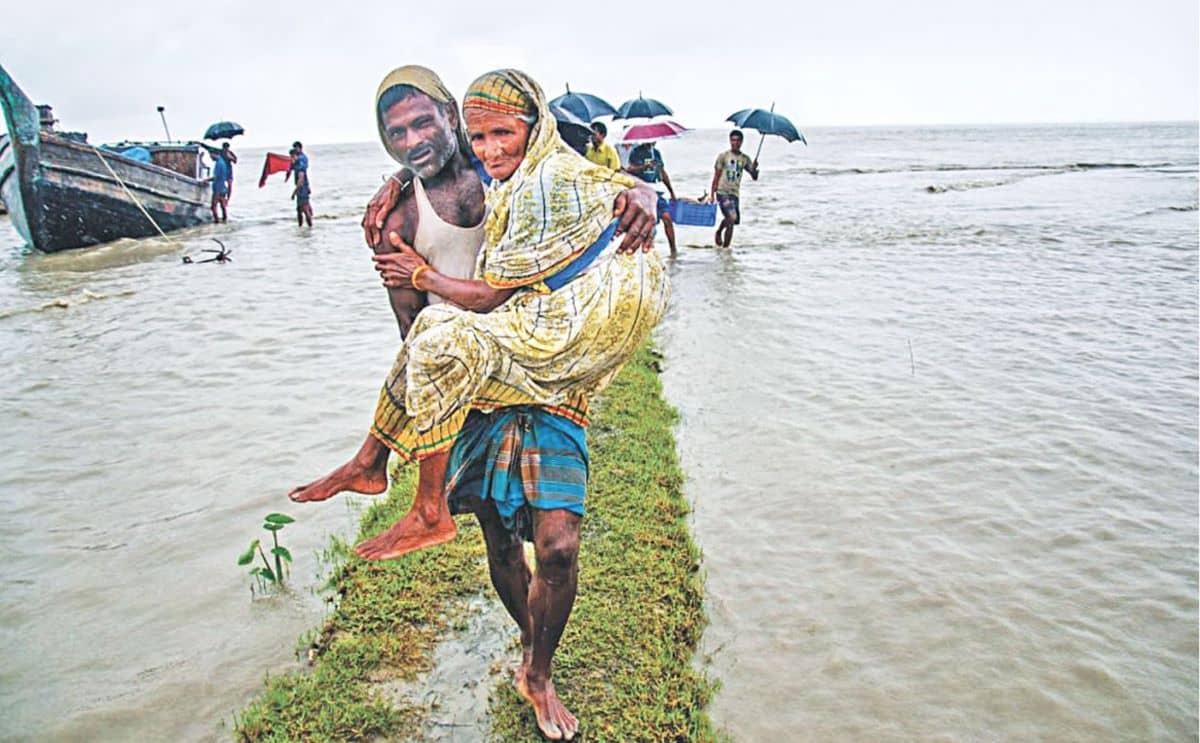
Mujib Climate Prosperity Plan replicated
Following the adoption by Bangladesh of its “Mujib Climate Prosperity Plan” in 2020, many members of CVF have already or are in the process of preparing similar plans to chart and implement strategic investment pathways to deliver robust socio-economic development for accelerating prosperity. As the Bangladesh leader indicated, the MCCP changed the narrative from vulnerability to resilience to prosperity. This was reflected in the commendation by other leaders of CVF. For example, the Closing Press Release by theCVF-SecretaryGeneral on the adoption of the UAE Consensus contained profuse appreciation of such initiatives. Here is a quote from the press release: “Bangladesh’s Mujib Climate Prosperity Plan has effectively utilised the International Monetary Fund’s (IMF) Resilience and Sustainability Fund (RSF), securing $1.4 billion. This fund, complemented by multilateral, private, and bilateral resources, is crucial for realising our Climate Prosperity Plans. Furthermore, our engagement with China in making the Belt and Road Initiative more sustainable exemplifies our commitment to shared prosperity, as underscored by the UAE Consensus.”
Leadership focusing on climate justice and human rights issues
Bangladesh’s leadership was always very strong in demanding adequate finance based on justice considerations. For example, in response to the Paris Agreement’s provision of a new collective quantified goal to be reached by 2025, the Dhaka-Glasgow Declaration included a clause of a Delivery Plan for the annual $100 billion in climate finance from developed countries over the period 2020-2024 totalling $500 billion as additional finance in support of developing country climate actions which include Nationally Determined Contributions and National Adaptation Plans.
The declaration also called for regional and multilateral development banks to integrate vulnerability criteria. Amid a worsening debt crisis compounded by the Covid-19 pandemic, climate finance must also reverse the otherwise increasing share of climate finance as loans, and a decreasing share of grants, helping to lessen and not worsen our debt burden, and free up the necessary fiscal space for ambitious climate action.
It also called for the launching of an Emergency Coalition for Climate Resilient Debt Restructuring to harness debt servicing payments for investments in climate resilience and consistent with a rapid transition to 100 percent renewable energy.
The Dhaka-Glasgow Declaration further called upon urgent discussion, study and work of the IMO for establishing a mandatory GHG levy on international shipping so that majority of such revenues be employed as additional support for urgent climate actions, particularly by the vulnerable developing countries. The declaration also called for a Climate Emergency Pact to rebuild confidence in international climate cooperation, accelerate adaptation and to keep the 1.5 degrees Celsius temperature goals within reach.

Active diplomacy by Bangladesh with a ‘whole of government’ approach
Finally, Bangladesh carried out very strong and intensive diplomacy on all fronts to promote the CVF agenda. This was reflected in a number of initiatives by the Bangladeshi missions in Geneva, London, New York and elsewhere. Here are a few examples: the CVF Joint Session with Bangladesh Permanent Mission in Geneva on Climate Change priorities on Health, Labour and Human Rights dimensions were held on February 9, 2021; CVF-Commonwealth Dialogue’s Call for a Climate Prosperity Partnership’ (March 2, 2021); Joint Statement on Climate Change and Human Rights at the 46th session of HRC (March 9, 2021); CVF Parliaments-Global Renewables Congress on Shifting from fossil fuel to renewables (March 24, 2021). Thus, a whole of government approach, led by Prime Minister Sheikh Hasina, earned global acclaim in putting the CVF on the right track. It is expected that now Ghana and the future CVF leaders will carry the torch forward to realise its ultimate mission.
Originally this article was published on February 15, 2024 at Daily Star. The author Prof. Mizan R Khan is the director of the International Centre for Climate Change and Development (ICCCAD) at the Independent University, Bangladesh (IUB).
Email:mizan.khan@icccad.org


